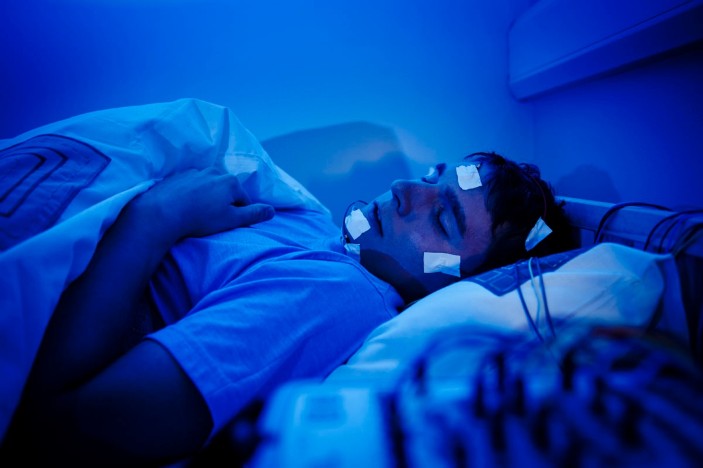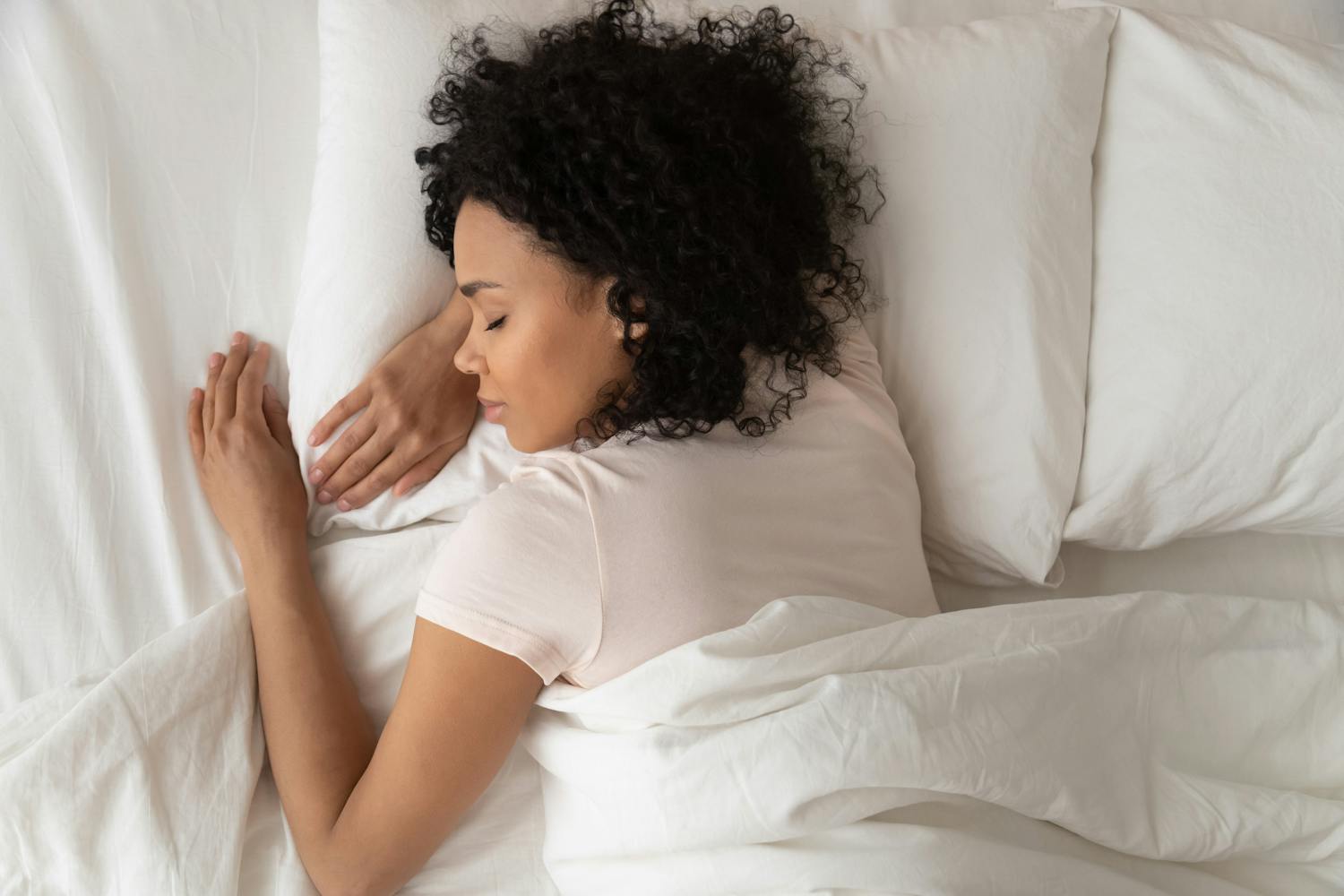Effective Insomnia Therapy - Reclaim Your Restful Nights
Effective Insomnia Therapy - Reclaim Your Restful Nights
Blog Article
Reliable Therapy Solutions for Taking Care Of Sleep Disorders and Enhancing Restful Rest
In the world of health care, the monitoring of sleep conditions and the quest for peaceful rest are critical parts of general health. As we browse the complex landscape of sleep disorders and seek to improve our sleep experience, a much deeper understanding of these therapy services might hold the trick to unlocking a much more refreshing and fulfilling restorative trip.
Cognitive Behavior Modification for Sleeplessness (CBT-I)
Cognitive Behavior Treatment for Insomnia (CBT-I) is a structured, evidence-based therapy approach that focuses on attending to the hidden factors adding to rest disruptions. This sort of therapy intends to customize actions and ideas that aggravate sleeplessness, inevitably promoting healthy sleep patterns. CBT-I generally involves several vital components, including cognitive therapy, sleep limitation, stimulus control, and rest health education and learning.
Cognitive treatment helps individuals identify and change negative thought patterns and ideas concerning sleep that may be hindering their ability to fall or stay asleep. Sleep constraint entails limiting the quantity of time spent in bed to match the person's real rest period, consequently increasing sleep efficiency (insomnia specialist). Stimulation control techniques aid develop a strong association in between the bed and rest by motivating people to head to bed just when sleepy and to prevent participating in promoting activities in bed
Additionally, sleep hygiene education and learning focuses on establishing healthy rest routines, such as preserving a constant sleep routine, creating a relaxing bedtime routine, and maximizing the sleep setting. By attending to these elements comprehensively, CBT-I uses an effective non-pharmacological treatment for handling sleeplessness and enhancing general sleep top quality.
Sleep Health Practices
Having developed the foundation of cognitive restructuring and behavioral modifications in dealing with insomnia with Cognitive Behavioral Therapy for Sleep Problems (CBT-I), the focus now shifts in the direction of exploring important Rest Hygiene Practices for preserving optimum rest high quality and general well-being.
Rest health methods encompass a variety of behaviors and ecological aspects that can dramatically affect one's capacity to drop off to sleep and stay asleep throughout the night. Constant rest and wake times, producing a relaxing going to bed routine, and enhancing the rest environment by maintaining it dark, silent, and cool are important parts of good sleep hygiene. Limiting direct exposure to displays prior to bedtime, avoiding stimulants like caffeine close to going to bed, and involving in regular physical activity throughout the day can additionally advertise far better rest high quality.
Furthermore, exercising relaxation methods such as deep breathing exercises or reflection before bed can aid relax the mind and prepare the body for rest. By incorporating these sleep hygiene practices into one's day-to-day routine, people can develop a healthy and balanced sleep pattern that sustains restful sleep and general well-being.
Leisure Methods and Mindfulness
Implementing leisure strategies and mindfulness practices can play a pivotal role in promoting a sense of calm and promoting top quality sleep. sleep disorder treatment. These methods intend to silent the mind, minimize anxiety, and create an optimal atmosphere for restful sleep. One commonly practiced approach is deep breathing exercises, where individuals concentrate on slow-moving, deep breaths to unwind the mind and body. Progressive muscular tissue leisure involves tensing and after that releasing each muscle team, promoting physical relaxation. Furthermore, guided imagery can aid transfer individuals to a relaxed location in their minds, helping in tension decrease and enhancing sleep quality.
By incorporating these techniques into a bedtime routine, people can indicate to their bodies that a fantastic read it is time to take a break and prepare for sleep. Overall, integrating leisure strategies and mindfulness practices can considerably contribute to handling rest problems and enhancing general sleep quality.

Medication Options for Sleep Disorders
After discovering leisure methods and mindfulness practices as non-pharmacological interventions for enhancing rest high quality, it is vital to consider medicine choices for individuals with rest conditions. In situations where lifestyle changes and therapy do not provide enough alleviation, medication can be a beneficial tool in managing sleep disturbances.
Commonly recommended medicines for sleep conditions include benzodiazepines, non-benzodiazepine hypnotics, antidepressants, and melatonin receptor agonists. Benzodiazepines, such as diazepam, are sedatives that can help cause rest, yet they are usually recommended for short-term more information usage as a result of the threat of reliance. Non-benzodiazepine hypnotics like zolpidem are likewise made use of to deal with sleeplessness and have a reduced threat of dependancy contrasted to benzodiazepines. Antidepressants, such as trazodone, can be useful for people with co-occurring clinical depression and rest disruptions. Melatonin receptor agonists, like ramelteon, target the body's all-natural sleep-wake cycle and can be valuable for managing rest patterns.
It is critical for individuals to seek advice from a doctor to determine the most proper drug choice based upon their certain rest disorder and medical history.
Light Therapy for Circadian Rhythm Policy
Light treatment, additionally referred to as phototherapy, is a non-invasive treatment approach utilized to control body clocks and boost sleep-wake cycles. This treatment involves direct exposure to brilliant light that mimics all-natural sunshine, which aids to reset the body's biological rhythm. By revealing people to certain wavelengths of light, typically in the morning or night depending upon the preferred impact, light treatment can properly change the circadian rhythm to promote wakefulness throughout the day and improve restful sleep in the evening.
Research study has revealed that light therapy can be especially helpful for people with body clock conditions, such as postponed sleep stage syndrome or jet lag. It can likewise be helpful for those experiencing seasonal affective disorder (SAD), a kind of depression that commonly takes place throughout the winter season when natural light direct exposure is decreased. Light treatment is typically well-tolerated and can be utilized along with other therapy approaches for sleep problems to optimize end results and boost overall sleep top quality.
Final Thought
In verdict, reliable treatment services for managing rest problems and enhancing relaxing sleep consist of Cognitive Behavior modification for Sleeping Disorders (CBT-I), rest health methods, relaxation techniques and mindfulness, medicine choices, and light therapy for body clock law. These methods can aid people improve their from this source sleep high quality and total well-being. It is necessary to seek advice from a health care supplier to identify one of the most suitable method for dealing with sleep issues.
As we navigate the intricate landscape of sleep problems and seek to boost our rest experience, a deeper understanding of these treatment remedies may hold the trick to opening an extra relaxing and meeting corrective journey.
Sleep limitation includes restricting the amount of time invested in bed to match the person's real sleep period, therefore increasing rest effectiveness. Regular sleep and wake times, producing a relaxing going to bed regimen, and maximizing the rest atmosphere by maintaining it dark, quiet, and cool are crucial parts of good rest hygiene. Light therapy is usually well-tolerated and can be made use of in conjunction with other therapy approaches for rest disorders to enhance results and boost overall rest quality.

Report this page